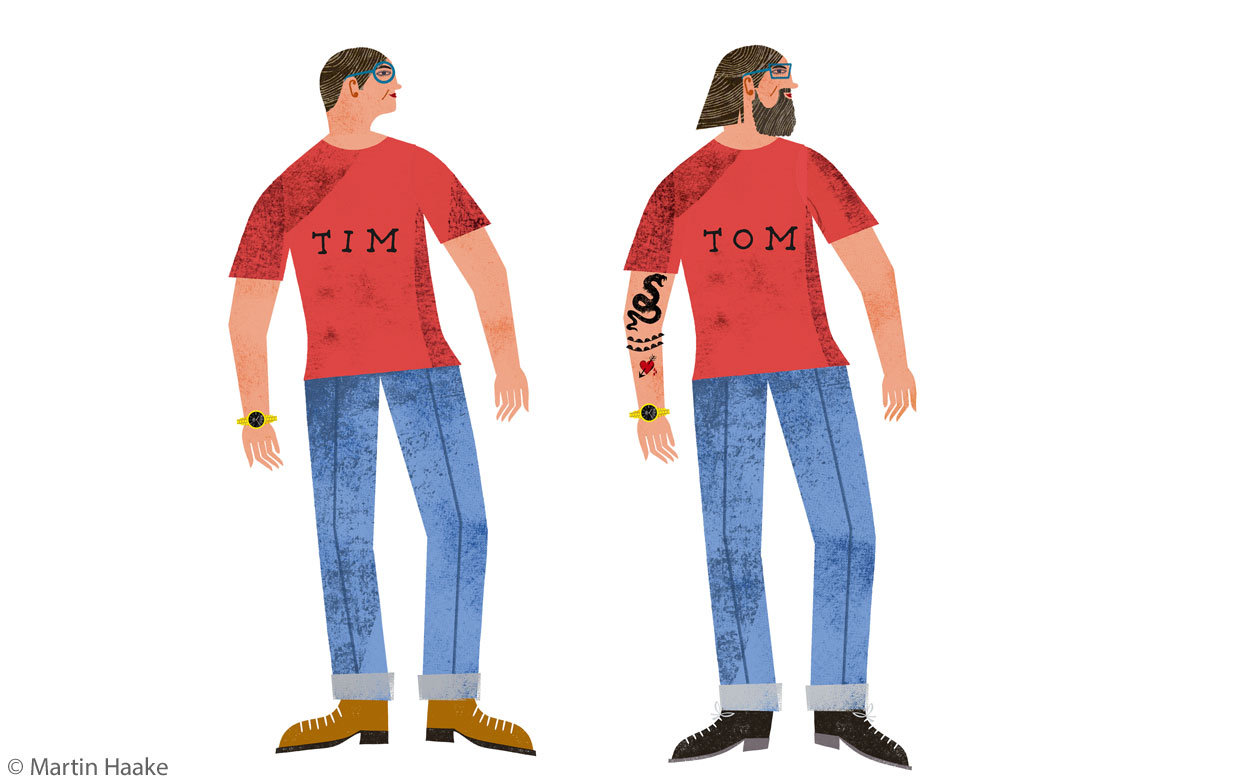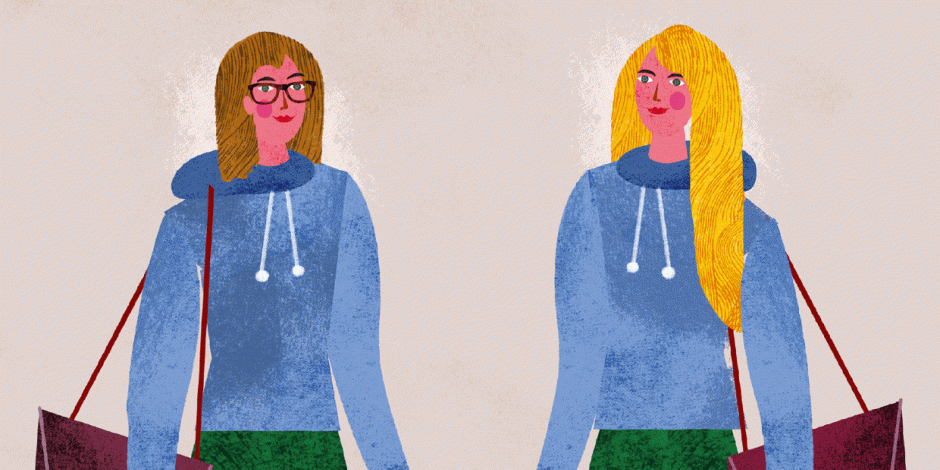A conversation with Georgie Cosens
Here, we present interesting lives of real people from around the English-speaking world. This time, we talk to Georgie Cosens, a twin.
Tell us about you and your twin sister.
We’re 19. We’re both students. Lexi is studying psychology in London and I’m doing English in Oxford.
Are you identical twins?
Yes, we are. When we were younger, we looked identical, with the same haircuts. But now, we look quite different. I mean, we look similar, of course, but not identical. I’m very blonde at the moment and Lexi’s hair is a bit darker – our natural colour – and shorter. She wears glasses and I’ve got contact lenses.
Are you close?
Yes, very. We speak every day.
How do people react when you say you’re a twin?
They always ask the same three questions: “Who’s older?”, “Are you telepathic?” and “Did you play play a trick on sb.jmdm. einen Streich spielentricks on your teachers?”
So, who is older? Are you telepathic? And did you play tricks on your teachers?
Ha ha! I’m older. No, we’re not telepathic. And, no, we didn’t play tricks on the teachers, though they often mix sb. upjmdn. verwechselnmixed us up. Actually, there is one more question that people ask now: “Have you ever had a threesome (ifml.)Dreier, Sex zu drittthreesome?”
OK, let’s finish there! No more questions!

Fascinating facts about twins:
- Twins can have different birthdays – if the first baby comes before midnight and the second one after.
- “Non-identical twins” are also known as “fraternal twins” and develop from two separate eggs. Essentially, they are regular brothers and sisters who happen to be born at the same time.
- It’s very rare, but non-identical twins can have different fathers. They begin as two separate eggs, so the sperm that fertilizes them could come from two different men.
- There are around 13 pairs of twins per 1,000 births around the world. The African country of Benin has the most twins – around 28 pairs per 1,000 births.
- Older mothers and taller mothers are more likely to have twins.
- According to research, vegan mothers have significantlybedeutendsignificantly fewer twin births than mothers who drink milk.
- Twins have the same DNA (or very nearly), but they don’t have the same fingerprints.
Neugierig auf mehr?
Dann nutzen Sie die Möglichkeit und stellen Sie sich Ihr optimales Abo ganz nach Ihren Wünschen zusammen.



